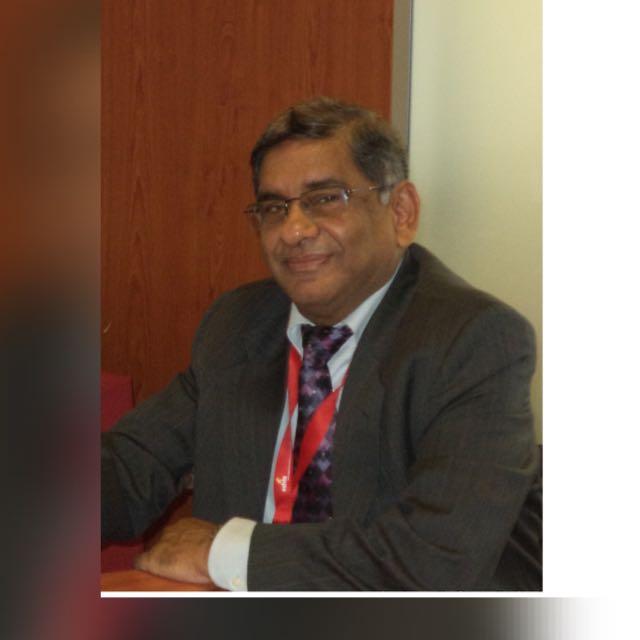
FINAL | BUSINESS CASE - BCS 09
Submission BCS 09
NMO Season 3
IT Strategy and MIS Reporting Tool
Submission Date & Time : 2021-04-03 10:54:28
Submitted By : Arijit Goswami - From Team Edison
Let’s have a look into the IT operations. The entire waste to wealth management system will be grounded in strong technological capabilities and use of cutting-edge technical capabilities in integrated waste management. The entire operational flow will be as follows:
- Our customers will be primarily of four types, namely households, corporate houses, institutions (hospitals, schools, restaurants, etc.) and public services (parks, parking lots, bus stand, etc.)
- Each entity will be provided with four colored dustbins, as described below:
- Green dustbin: Organic waste
- Red dustbin: Toxic waste, e-waste, metal
- Blue dustbin: Dry inorganic waste
- Yellow dustbin: Wet inorganic waste
- This distribution of colored dustbins for 'waste segregation at source' will be conducted by the Municipal Corporation of Bhopal
- Waste from each entity will be discarded into the colored dustbins
- Every morning, a garbage picker will come to his door with four similarly colored bags
- The garbage picker will put the garbage of one dustbin into a bag of the same color. That means the red dustbin waste goes into red bag of garbage picker.
- The garbage picker will do the same for all houses in a society and then proceed to a set of large garbage bins (let's call them community bins) placed outside the society.
- There will be four differently colored community bins. Garbage picker empties his red bag into red community bin, blue bag into blue community bin, and so on.
- The community bins are equipped with IoT sensors and when they are almost full, they relay an alert to our office, asking for emptying them.
- All such alerts over a day are stored in our database.
- Then, every morning at 5am, Green Wealth (our company will check which all community bins are asking for being emptied. All these community bins will be located on a map and an optimized route will be planned for our garbage trucks to go and empty them.
- The garbage picking trucks will come back to our facility, where the segregated waste will be again sorted and segregated by automated sorting machines, just in case some unsegregated waste has made its way into our bins.
- The machines will reduce manual labor and will make processes much more efficient.
- First the organic waste will be divided into two categories - composting and biomethanation. We will check every day how much of composted manure is in demand by farmers around Bhopal, and will accordingly set aside appropriate amount of organic waste for composting.
- Rest of the organic waste will go into biomethanation plant, where energy will be produced for lighting up the suburbs of Bhopal.
- The construction and demolition waste will be converted into paver blocks, which will be used by municipal corporation for building and mending the city roads.
- Single-use plastic will be recycled into road paver blocks, while other plastics will be converted into electrical switches
- Paper, plastic and glass waste will be sold in bulk to the village level small enterprises that recycle them into paper plates, glass bangles, plastic items, etc.
- We will enter into contract with these SME partners under government's supervision. This way, we will be supporting grassroot level enterprises and will be supporting livelihood of people in villages.
- All other waste that cannot be recycled will go for incineration, which will help produce energy.
MIS Reporting:
All reporting will happen on MIS sheets. The following MIS tools will be implemented for each department.
IT and Operations Team
Waste Collection Turnaround Time vs SLAs
This MIS tracker will help to understand if the waste collection trucks are reaching the Community Bins on time and if they are covering the entire route within the SLAs. Any consistent delay by any driver will be highlighted and the bottlenecks in time management will be investigated. Any truck that is delayed on a particular day will be highlighted on the MIS tracker. The MIS dashboard will also show the name of assignee, so that HR team can decide on their performance.
Actual Processing Time vs Define Processing Time Limits
The “Waste Management System” MIS dashboard will show how much time it takes to move a box of waste from sorting center to recycling center. Any delay in any of the workstreams will be highlighted. Moreover, operations team will be able to check if category and volume of waste is impacting the processing time.
Community Bins seeking attention vs Community Bins serviced
“Community Bin Tracker” MIS dashboard will show which all community bins are pending for being emptied by the trucks and how many have been serviced. The operations team will gain key insights into how the processes can be further streamlined and if more trucks are to be deployed, or if the city must be divided into separate blocks for quick turnaround time by trucks.
Leadership Team
Daily Emissions vs Emission SLAs by government
“Emissions Tracker” MIS dashboard shows the volume of toxic gases (like NO2, CO, Methane, Hydrogen Sulphide, etc.) being emitted by the Community Bins and if they are well within the permissible limits. Radioactivity index also helps the leadership team to track if Green Wealth is meeting the environmental safety parameters.
HR team
Actual Truck Speed vs Speed Limits
The speed and acceleration of the trucks will be monitored to check if drivers are rash driving and if they are exceeding the speed SLAs placed over them. This will help the team to ensure that our trucks don’t become a hazard for the public. If trucks are observed to regularly over-speeding to meet the turnaround time SLA, then the operations team will revise the SLAs accordingly.
Marketing Team
Reach to Conversion ratio
The marketing team will get to understand which kind of marketing campaigns are resulting in adoption of our services. Households, corporates and gated societies will reach out to us for enrolling in the program. Their visits to website will be tracked using Urchin Tracking Module (UTM), placed at the end of the market campaign URLs. This data will get fed into the "Marketing" sheet through the database layer. Eventually, the Returns of Marketing Investments will be available for visualization and analysis, that will further bring efficiencies in marketing campaigns.
Finance team
Revenue vs Net Income MIS
The finance team will be able to check how much of revenue has come each quarter and how much of costs have been incurred. It will also help to set budgets and raise money for the balance, so that the company can have net positive turnovers every year.
Mobile app features
- Households will be able to check if their Community Bins have been emptied on time and are being regularly serviced – thereby increasing transparency and accountability in the process
- Green Whistle will allow citizens to be whistleblowers in cases where waste management is not being done, and they will be able to refer the violators to us, so that we can bring them under the ambit of waste to wealth
- Insights Lens will provide visual insights to stakeholders on how well Bhopal is doing in waste management
- Truck drivers will be able to leverage the partner version of the app, for checking the optimized route of waste collection and to report the status of their activities
- Food donation app will allow restaurants to donate the leftover food, so that it can be passed by us to the orphanages or elderly care homes which partner with us – this will derive much higher value out of food instead of routing it to composting pits
Corporate Social Responsibility:
- We shall partner with few restaurants on pilot basis and give them an app which helps them to donate their leftover food at the end of day.
- using the app, the restaurant owner can notify how much kilos of leftover food is available and what time the pickup is needed.
- Our personnel will reach the restaurant and pack the leftover food, which will be donated at shelter homes and orphanages that partner with us.
- This will retain the best value of food, rather than redirecting it into composting or biomethanation.
Management Principles:
Triple Bottom Line – We are impacting People’s lives through efficient waste management, generating Profits through the production and sale of recycled/upcycled products and also contributing towards the cause of Planet through our sustainability programs.
We are targeting the seven wastes of operations management, viz. overproduction, inventory, motion, defects, over-processing, waiting, and transport
- Drone traceability and route optimization for last-mile delivery
- Automation and Centralization of reporting
- Transparency in scalar chain
- Omni-channel marketing strategy
- “Unity of command” and “unified direction” through unified reporting
- Sustainability and eco-friendliness by reducing fuel spending on delivery vehicles
Comments

Dr Saroj Kumar Dutta
Nice submission Arijit, Practical Implementation need more explanation, as expected in finals, over all nice efforts. All the best

Rajni Khosala
Arijit, Well done, great Mockups and Charts, tracker may help your team alot. your solution is good. all The best.

Umeash Sahhaaii
Good Work Arijit, but I believe you could have done better, Kudos and All The best.
Participant
Arijit Goswami
Capgemini, Senior Manager
IIMK alumnus by qualification, Project Manager by profession, tech blogger by passion.
Team Edison BCS 09 Submission
Total Team Points: 132500
Team Sarabhai BCS 09 Submission
Total Team Points: 135450









